Avoiding Backyard Chicken Predators – How To Keep Your Chickens Safe.
If you worry about the safety of your hens, then this article on avoiding backyard chicken predators may have the tips you need to help. Things we have used in our home backyard coop to help keep the local animals away from our flock.
When raising chickens you want to do whatever you can to keep them safe and that all begins with their coop. Start there and you will have a kitchen full of farm fresh eggs all year long.
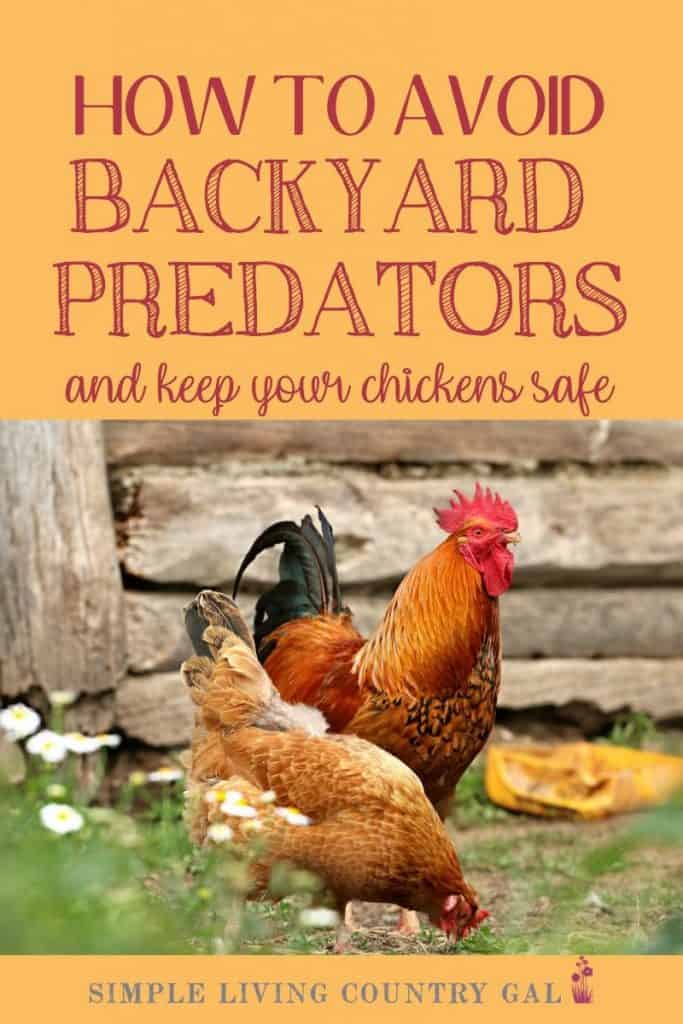
How to stop backyard chicken predators so you can better keep your chickens safe.
It was just another day here on the homestead. I was heading out to feed and water the chickens and I immediately noticed something was wrong. My hens were acting off, staying on the roost, and not crowding the door as usual.
As I looked around I saw one of my prized hens laying under the roost. I went over and saw to my horror that she was dead. There really is nothing quite as heartbreaking as finding an animal that you work so hard to take care of killed right there inside the henhouse. A place where our chickens go to be safe and not hunted.
My heart sank.
After 8 years of raising chickens, this was my first predator attack.
How could I tell my beloved hen was killed by a predator? I could see by the condition of her body.
When a predator such as a weasel, raccoon, or hawk kills a chicken they kill just to kill.
They do not eat it…… they just kill it. Usually by biting the head off. (sorry, pretty graphic, I know) If you find a decapitated hen, then you know right then and there you probably have a predator and you need to take action fast.
Once an animal learns how to get into your henhouse, I promise you they will be back. They will be back to take the eggs and to kill the chickens.
The best advice that I can give is to set to work immediately taking steps to better protect your backyard chickens from predators. Remember, your animals depend on you to keep them safe and if you have a predator in your coop, don’t beat yourself up over it. Instead, take the necessary precautions so it does not happen again.
With winter in full swing, animals are hungry. They are understandably drawn to food such as eggs, chicken feed, and kitchen scraps.
As you are out doing chores, always watch for suspicious tracks in the snow leading from the coop. If you see any, you may want to take action immediately.
Prevent Backyard Chicken Predators
These steps on how to stop backyard chicken predators from attacking are all great to do any time you see tracks near or around your coop. Be proactive and do what you can to stop things before they go too far.
Step #1 Clean Out the Chicken Coop
To stop a repeat visit from an outside animal you first need to find where how they got in. To do that you will need to clean everything out.
Every corner being sure to be thorough as you go along.
You need to get all the bedding out so you can get a good look at the coop. Scrape, sweep, and shovel. Remove every bit of bedding along with the nesting boxes.
Move everything away from the walls. You would be amazed at the small size of the holes that a predator is able to get through if they are determined.
Step #2 Inspect everything
Once you have the inside of the chicken coop emptied and cleaned out take the time to do a good and thorough inspection.
You will want to look everything over. The walls, the floor, the corners, the door. Everything.
Do your best to get down on your knees and look around the area. You may not be able to see an opening from a standing position. Use every viewpoint and look up and all around. Don’t make the mistake I did and assume a small opening is too small for an animal to get through.
Once, when I found what I thought was just a crack in the wall was actually an opening that was wide enough for a dozen small birds to squeeze through every day so they could eat our chicken’s feed.
Let me just say that trying to feed your chickens with a dozen little hungry birds flying around your head really gets this old heart pumping.
Step #3 Seal it Up
As you find a crack, space, or hole that you feel may allow predators can gain access, seal it up. You can do this with scrap pieces of wood and a handful of nails.
We have a small bin of wood scraps that are useful for many situations, this one included.
You will also want to check any fencing that you have as well. If you are short on extra fencing to use for patching a hole, you can also secure wood pieces until you can get more.
Remember, sealing up access areas it doesn’t have to look pretty, it just be effective.
Step #4 Lock up Any Feed
If you want to stop some of your unwanted visitors, then you need to remove the food source. This is especially true if the containers you keep your animal’s feed in is not sealed up tight.
Keep all of your animal’s feed, scratch, and treats inside of totes or metal cans with good tight-fitting lids. You can also go one step further and place a brick on the lid to prevent a chicken predator from gaining access.
READ: Best Feed Storage Containers
Another tip is to do most of your feeding during daylight hours. This will give your animals plenty of time to not only eat but to also clean up any food they drop during feeding time.
Backyard chicken predators such as skunks, weasels, and raccoons come out mainly at night so make sure any heavy feeding is done early enough so your chickens are able to clean it all up before dusk.
Step #5 Install Sturdy Roosts
Make sure you have your chicken roosts up off the ground for your hens. This will not stop an attack but it will keep your hens safer if a predator is there to steal eggs.
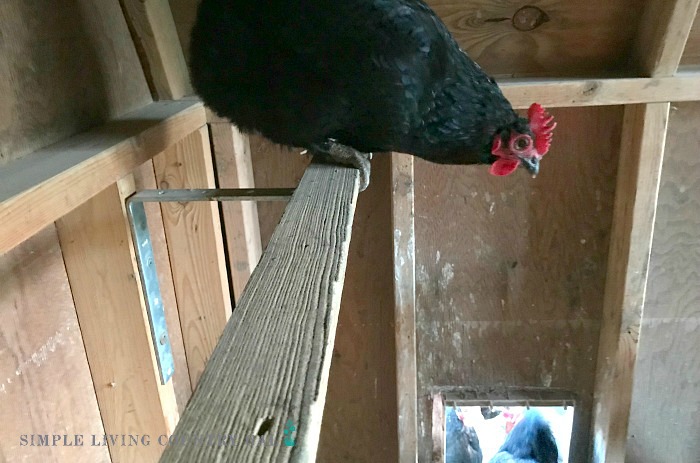
Chickens have a natural instinct to be up off the ground at night. By giving them enough room to do this, you will help them to protect themselves more easily.
READ: Everything You Need To Know About Chicken Roosts
Step #6 Train Your Hens to Come When Called.
Get into the habit of locking your chickens up safely before dusk or earlier if you already have a predator problem.
Since most backyard chicken predators prowl at night, it helps to get a head start and put your hens safely inside of their coop before nighttime.
To help you can train your chicken flock to come to you when you call. Training your chickens is easier than you think.
How to Train Your Chickens to Come When Called:
- Each time you put your hens away give a quick call.
- Use something familiar to you such as “chick-chick” or “here chickens”.
- Use the call as you sprinkle their favorite snack around. Things like chicken scratch or meal worms are great options to try.
- Do this daily until your entire flock understand what that call means.
Each time you do this routine your hens will associate that call and your voice with the treat and come running. This is a great tool to have on evenings that you might be running late and need to get your hens to safety fast.
Step #7 Purchase a Little Extra Help
Get a predator light. Yes, this actually IS a thing.
I just recently read about these small sensor lights and I am happy to say they work great! They work as a deterrent for any small rodents keeping them away from the coop. Once it becomes dark outside the sensor turns the light on and a red flashing light continues until daylight.
I was a bit skeptical at first, but since installing one at the front of our chicken coop and the other at the back we have removed almost all of the footprints that I normally see each morning.
Step #8 Eliminate the Problem
If you have already done the tips listed so far and you find yourself still with a problem, you may need to take things one step further.
Once a predator knows where the flock is and they have gotten the “taste” of your chickens and/or their eggs, it may be difficult to stop them. This means you will have to remove the problem instead.
We prefer to use live traps. The reason is when using poison you run the risk of hurting maybe even killing your own animals. Most animals are very curious and there is just no way to ensure they will leave any poison you have out alone.
For this reason, we prefer to use live traps to catch and remove any uninvited animals.
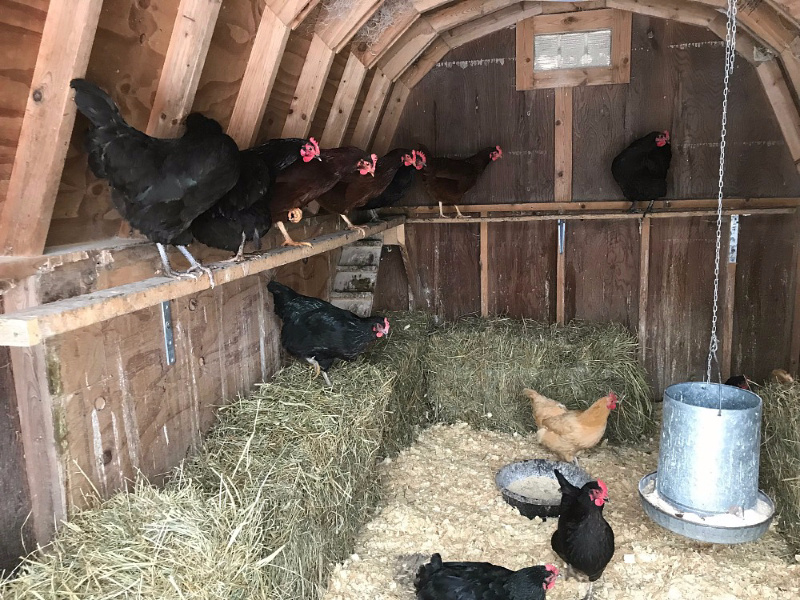
We set out live traps out only from dusk to dawn. This just ensures our pets are all safely inside keeping them away from the traps.
Remember, raising animals comes with a great deal of responsibility.
Our animals rely on us for food, water, shelter, and yes protection. If you lose a chicken to an attack from backyard chicken predators, don’t beat yourself up.
Follow these tips and do what you can to protect your animals and hopefully your girls will be happy and safe.
More Chicken Care Resources:
- Is Your Chicken Sick? Use this Checklist!
- How to use ACV for Healthier Chickens
- Should you Free Range Your Chickens?
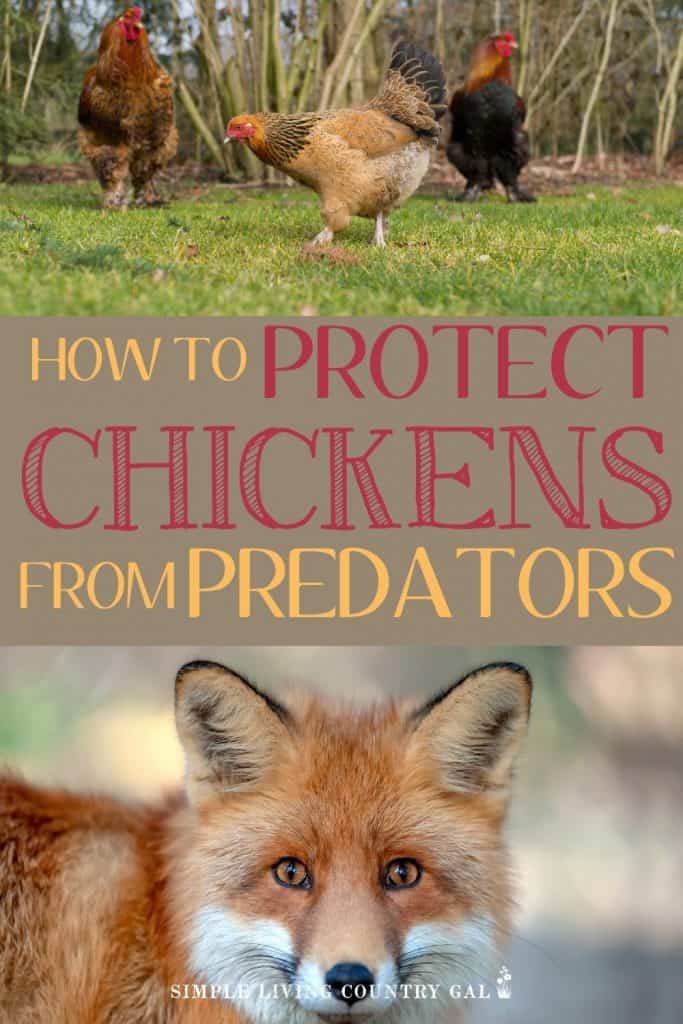

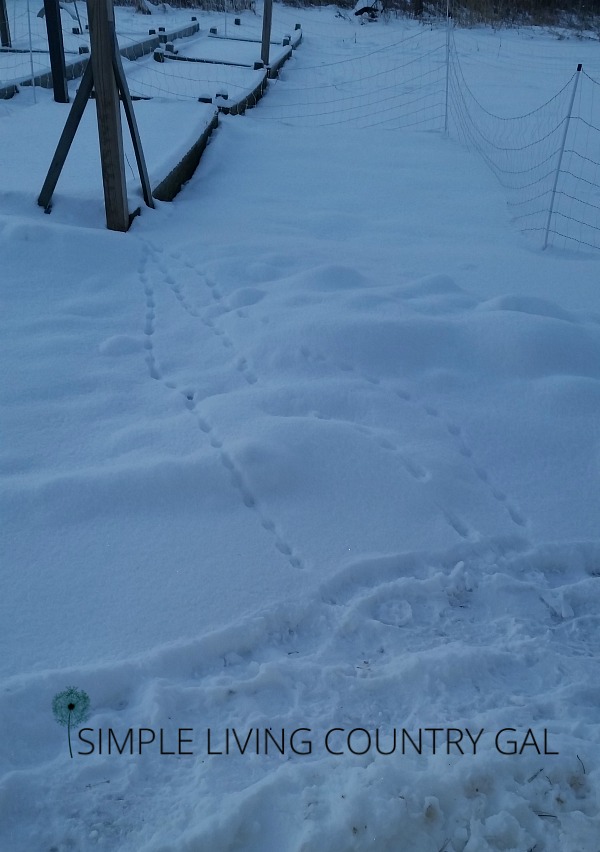
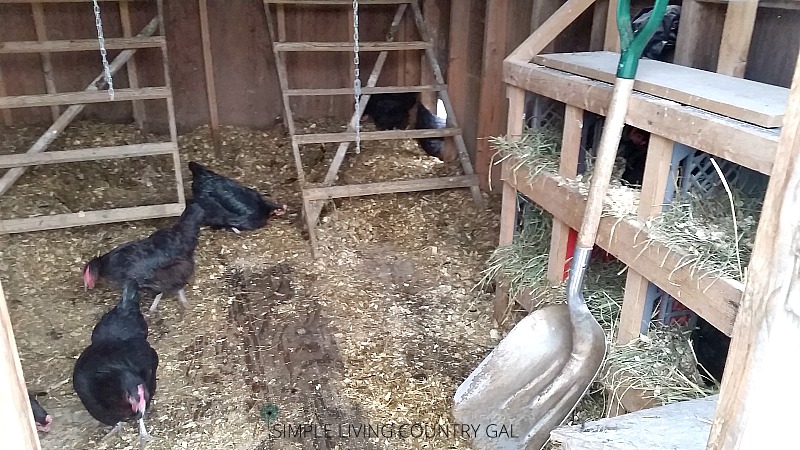
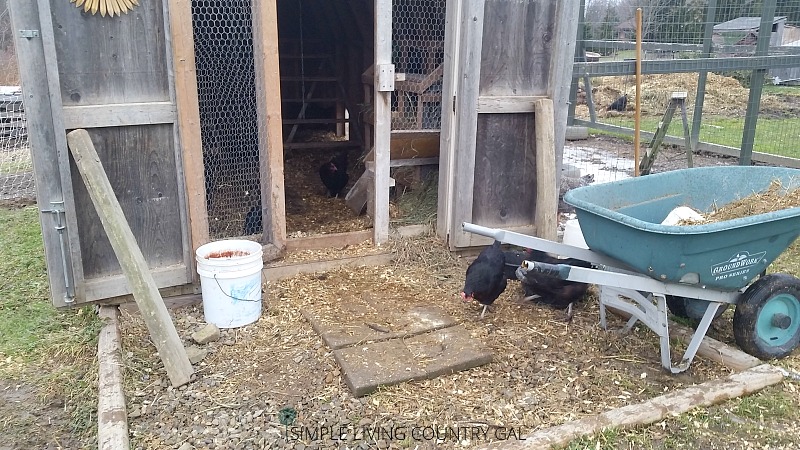
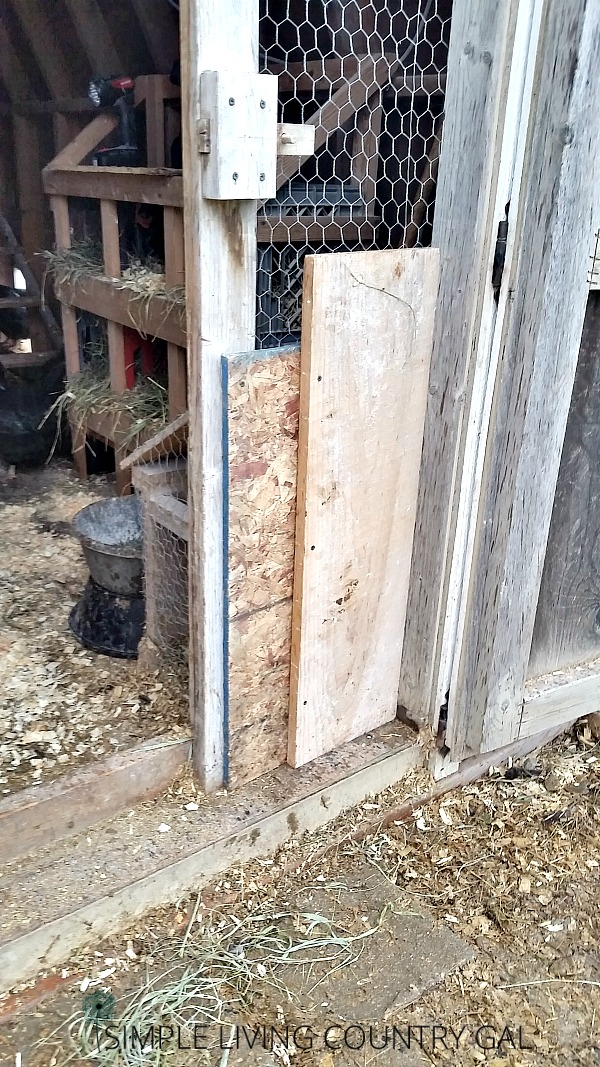
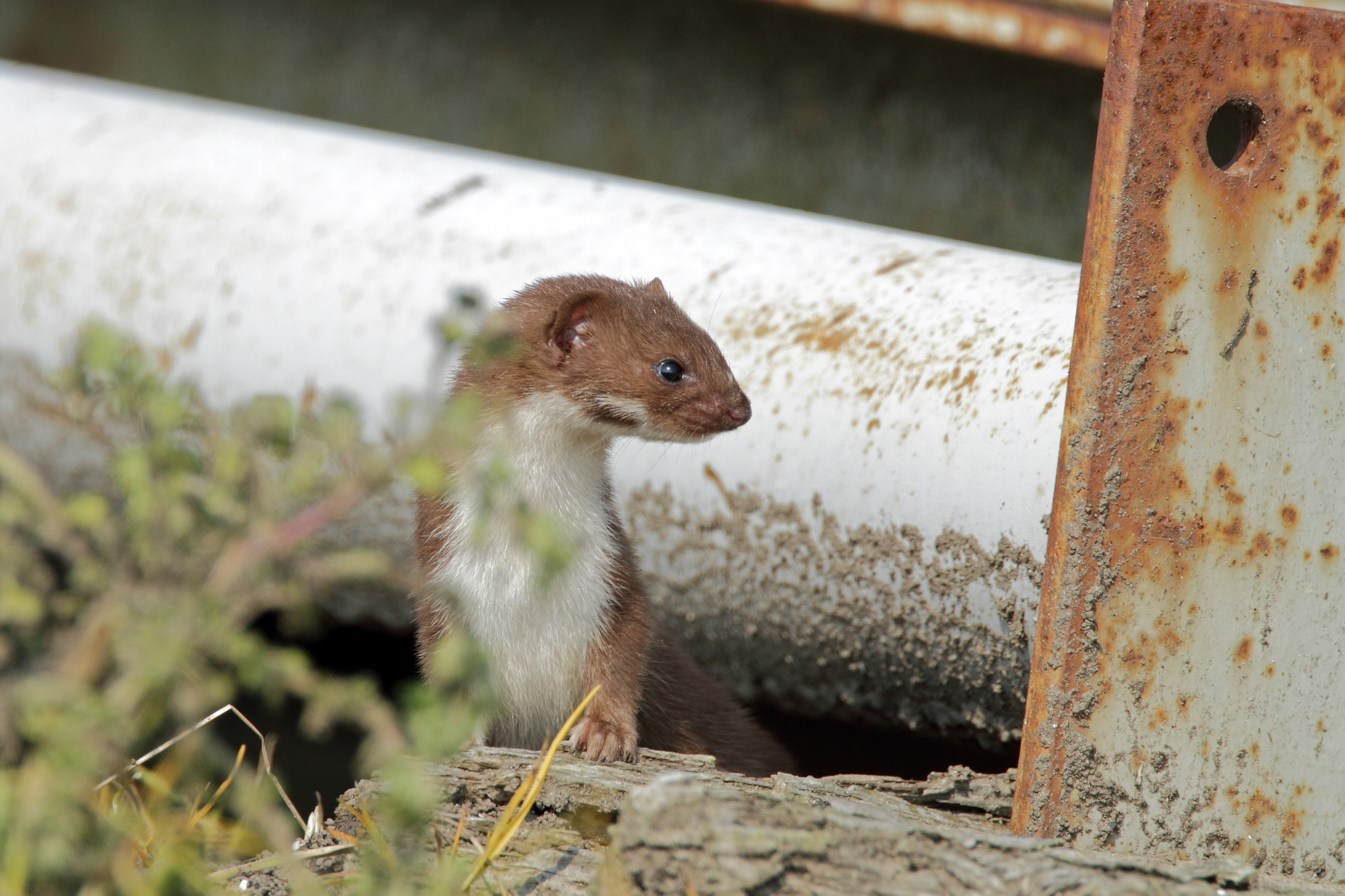
Hi! I don’t have a homestead yet but grew up a lot on my grandparents farm (60 acres: chickens, veggie gardens, 40-50 head cattle, guineas.). Wondering if you know or have found that having dogs helps keep predators away??? I’m in Texas. So we don’t deal with the snow 😉
Hello Ali,
Where we live the predators we deal with are weasels, raccoons, rabbits, dear, and other cats/dogs. For us dogs absolutely do help. In Texas, I am not that sure of the predators you have to deal with so a dog’s effectiveness will be different for you than it is for me. Sorry, I am not of more help! You may want to reach out and ask others in your area what their experience is.
Tracy Lynn
Thanks!! You have great info//format.